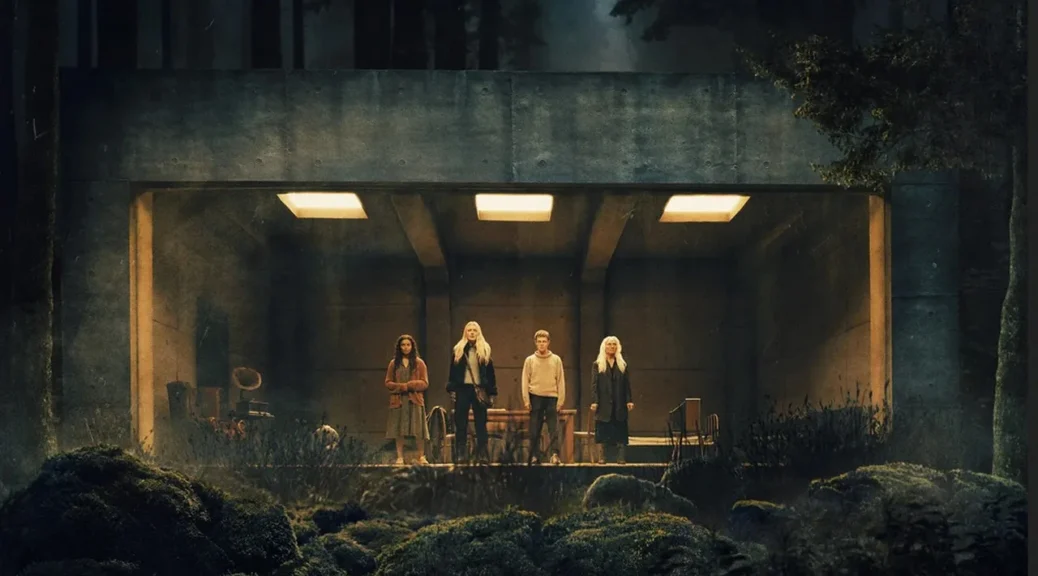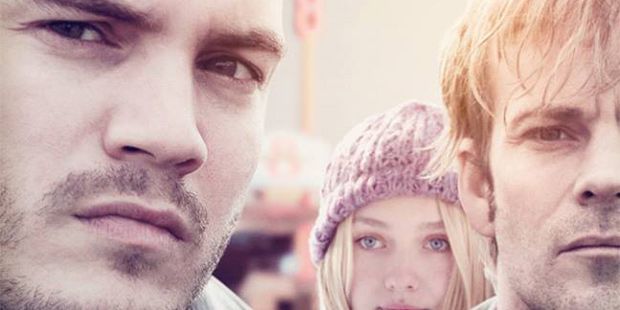The Watchers
by Hope Madden
Tales of Irish fae folk can be terrifying. Often part ecological horror, part folktale, they can hit a primal fear of powerlessness and loss of identity. Ishana Shyamalan’s feature debut The Watchers, which she adapted for the screen from a novel by A.M. Shine, tackles these notions and adds a comment on voyeurism as entertainment.
Mina (Dakota Fanning), an unhappy American girl working at a pet store in Galway, agrees to drive a day to get a rare bird to a zoo. “Good chance to see the Irish countryside.”
GPS is shite in heavily forested areas, the road becomes just muddy tracks, then the car seizes and stops. One terrifying thing leads to another and suddenly she’s racing, birdcage in hand, toward a metal door being held open if she can get to it in 5, 4, 3, 2…
Credit Shyamalan (or my enduring fear of the woods?) for ratcheting tension early on. If you’ve seen the trailer, you know what happens next: she’s trapped inside with three others, one wall is a window, and at night those damn fae folk come to watch those inside.
It’s a great set up and a compelling, strange premise—the kind of thing the filmmaker’s father might make, and just as fraught with possible missteps. Remember how cool the trailer for Old was?
The Watchers is heavy with symbolism, from the bird in the cage to Mina’s personal roleplay games to the reality TV DVD collection someone left for the trapped to watch. There’s no denying the film is impeccably structured, Shyamalan unveiling complications and backstory as the structure dictates. Performances are solid as well.
Fanning’s portrayal is a bit faraway and dead inside, which suits the character but makes for a relatively lowkey lead. The ever-formidable Olwen Fouéré is charismatic enough to make up for that, and both Georgina Campbell and Oliver Finnegan fill out their roles with raw tenderness.
Mina’s name (her twin sister is Lucy) is a clear nod to Ireland’s most iconic horror writer, Bram Stoker. The entirety of the film feels just that superficially Irish. Nor is there any authenticity to the ecological horror, although there’s plenty of opportunity. But the real issue—as is so often the case in a creature feature—is the monster FX.
Not good. Bad, even.
That’s unfortunate because, though hardly revolutionary and rarely scary, The Watchers is an often-intriguing thriller. But it doesn’t hold up to the great Irish horror that came before it.



